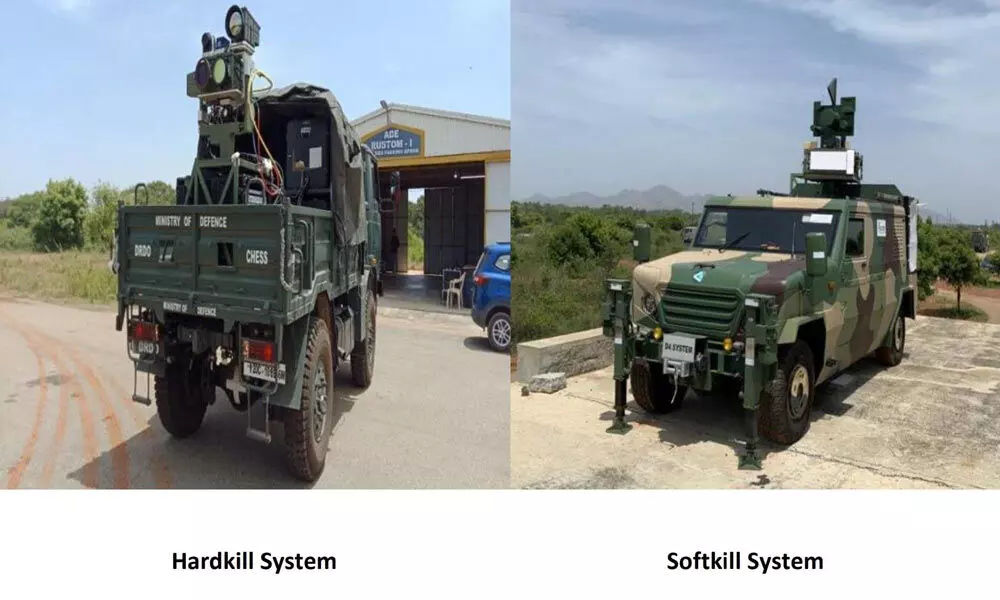SOURCE: AFI

In recent years, India has emerged as a frontrunner in developing counter-drone technologies. This rise can be attributed to a confluence of factors, with the 2021 drone attack on the Jammu Air Force Station serving as a stark wake-up call.
The 2021 drone attack on the Jammu Air Force Station, the first of its kind in Indian airspace, exposed a vulnerability in India’s defense system. This incident served as a catalyst, prompting significant investments in research and development (R&D) for counter-drone technologies.

India faces a multi-pronged drone threat, ranging from state actors like Pakistan to non-state actors using drones for smuggling and surveillance. This ever-present threat has driven Indian scientists and engineers to develop innovative solutions for:
- Drone Detection and Tracking: Advanced radar systems and acoustic sensors are being developed to effectively detect and track even small, low-flying drones.
- Drone Neutralization: A range of counter-drone technologies are being explored, including Directed Energy Weapons (DEWs) that disable drones with lasers or high-powered microwaves, Drone Capture Systems (DCS) that use nets or tethers to physically capture drones, and electronic countermeasures (ECM) that disrupt drone communication and control signals.
India possesses a robust scientific and technological ecosystem. This strong foundation fuels the development of advanced counter-drone systems, including detection, jamming, and neutralization technologies. Indian developers are exploring various counter-drone solutions, from radio frequency jamming and signal interception to drone-hunting drones and laser-based neutralization systems. This multi-pronged approach offers a comprehensive defense against different types of drone threats.
India is known for its ability to develop cost-effective defense solutions. This could give Indian counter-drone systems a competitive edge in the global market, attracting countries with limited defense budgets.
The urgency driven by security concerns, coupled with a strong technological base and a focus on indigenous development, positions India favorably in this rapidly growing market. By overcoming challenges and continuously innovating, India has the potential to become a global leader in counter-drone technology, safeguarding not only its own airspace but also offering solutions to other nations facing similar threats.